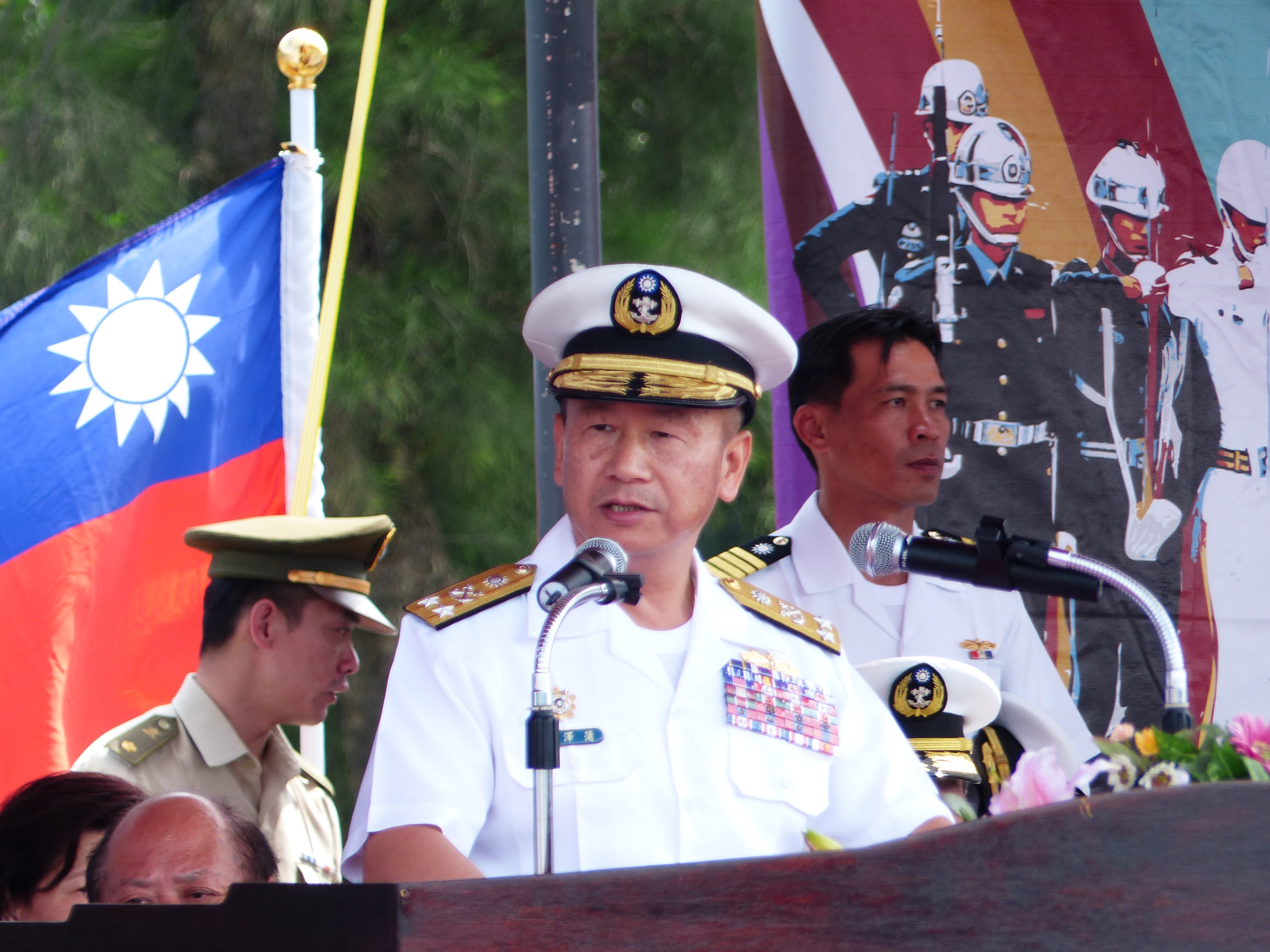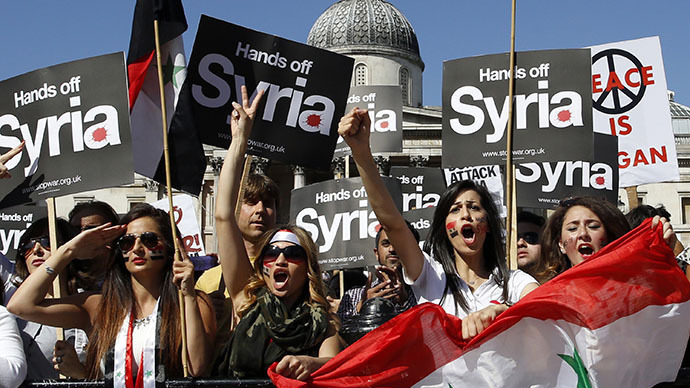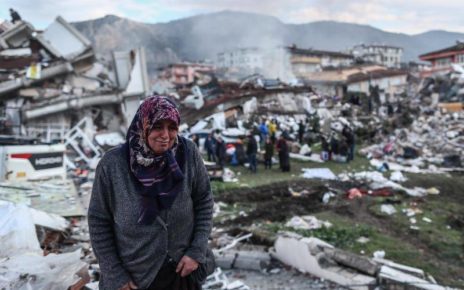As power changes hands in the Republic of China (ROC/Taiwan) today and nominations solidify ahead of U.S. elections, the future of the relationship between the protected and the protector, Taipei and Washington, will continue to evolve according to facts on the ground and the direction of those in power.
The Republic of China (not to be mistaken with the People’s Republic of China) has received military and financial support from the United States since Second World War, when it was the government in control of mainland China. After Japanese forces were repelled, by 1950, the ROC government was forced to flee the mainland to the island of Taiwan, having been defeated by the Communist Party in the Chinese Civil War. In spite of the ROC’s many defeats, failures, and track record of corruption under its leader, Cheng Kai-shek, Washington has consistently provided extensive financial and military support.
Politically, Washington has made concessions to foster better relations with the Chinese Communist Party, the ruling party of the People’s Republic of China (PRC). Most notably in 1979, the U.S. switched its recognition of the PRC as the rightful government of China, resulting in the political isolation of the ROC government in Taiwan in favour of the mainland. Later that same year, U.S.-Taiwan relations were defined by the Taiwan Relations Act, delineating Taiwan as a self-governed island the integrity of which is guaranteed by the United States.
In addition to placing Taiwan under the protection of U.S. forces, the development and furnishing of Taiwanese forces has been a pillar of US-Taiwan policy defined by the six assurances agreement of 1982. Two important articles are as follows:
Article 1: The United States would not set a date for termination of arms sales to Taiwan.
Article 5: The United States would not alter its position about the sovereignty of Taiwan which was, that the question was one to be decided peacefully by the Chinese themselves, and would not pressure Taiwan to enter into negotiations with China.
The United States has fulfilled these obligations by way of direct sales of US military hardware, or providing obsolete equipment through the Excess Defense Articles (EDA) program. Under every administration since, procurement support for Taiwan has numbered in the billions, and has in the past included state of the art equipment systems including patriot missiles, Apache attack helicopters and stinger missiles.
On May 16, The House of Representatives, where Taiwan receives bi-partisan support, both the Taiwan Relations Act and the Six Assurances were reaffirmed in House Concurrent Resolution 88. Support in Congress remains strong, and under Obama military equipment sales have continued, totaling 12 billion dollars, but criticism has been leveled that the president is prioritizing relations with Beijing ahead of ensuring an effective support for Taiwan maintaining a credible deterrence.
Senators John McCain and Ben Cardin sent a letter, November 2015, to President Obama raising concern over the lack of any new arms deal in the past four years, and questioned whether planned shipments were adequate or appropriate to counter China’s modernized military. They also criticized Taiwan for not spending 2% of its GDP on defense. The letter made special mention of absence of any plans to provide submarines and fighter jets, two elements deemed critical to Taiwan’s defense.
How Obama has so far addressed Taiwan’s request for these two major capabilities illustrates the difficulty of juggling the obligations outlined in the Six Assurances, the complex nature of Taiwan’s Military procurement needs, and the consequences of Beijing’s backlash.
Submarines for Taiwan
Under George W. Bush, the U.S. agreed to provide Taiwan with eight diesel electric submarines in 2001, but these were never delivered. Failure to follow through is unsurprising, as the U.S. Navy was not manufacturing or in possession of diesel submarines. Indecision and delay spanning two administrations has left Taiwan with a serious vulnerability. With only four submarines in operation, two of which have been in service since the Second World War, Taiwan has resolved to build the submarines at home.
Washington has hinted that support will be forthcoming, but will likely be delivered through commercial, rather than military channels, to avoid rousing the ire of Beijing. US defense contractors have already been courted by Taipei to partake, but the extent of their involvement will have to wait until after the Kaohsiung International Maritime and Defence Expo starting August 25th 2016.
Aircraft acquisition
The situation of securing the skies of Taiwan has been equally convoluted and scarce. With an aging fleet of F-16s, French Mirage jets, and indigenous built fighters, Taiwan’s ability to maintain a credible deterrence against China’s fleet of new fighter aircraft like the J-31 and missile capabilities is increasingly suspect. Despite Taiwan’s obvious vulnerability, little has been done to rectify the problem with the exception of offering upgrades to the existing F-16 fleet.
Unlike the submarine procurement situation, the U.S. does currently manufacture equipment that would meet Taiwan’s need, such as the F-35B multirole fighter. Given that China’s missile systems could quickly render Taiwan’s airfields useless, the vertical take-off capabilities of the F-35B would be essential in allowing the craft to operate without an airstrip. The purported technological superiority of the F-35B to China’s fifth generation J-31 would in theory give Taiwan a fighting chance when fending off sorties of enemy craft.
Acquiring F-35Bs is unlikely to happen. Given Taiwan’s defense budget of USD 9.7 billion, the costs of F-35Bs is beyond its defence spending expenditure range. Secondly, Taiwan is susceptible to Chinese intelligence penetration, leaving technological secrets of the F-35B exposed to espionage.
Talks are underway to provide Taiwan with U.S. Marines Harrier jets that will be replaced with F-35Bs, but whether the cost of maintaining more second hand equipment is going to make effective use of the island’s limited budget is a moot point. Even if Taiwan manages to augment its forces with new hardware, the scales of comparative advantage have already tipped well into China’s favour. A report by the RAND Corporation estimated that Taiwan’s air defenses would only last a matter of hours in the face of a determined Chinese assault on the island.
The difficulty for Taiwan to repel a numerically superior invasion force from the mainland, coupled with the political backlash and complications it causes for Washington-Beijing relations, will inevitable lead current and future administrations to question past promises to honor the six assurances agreement. The potential shying away from meaningful support for Taiwan’s military might further quicken under Tsai Ing-wen, if she is unable to allay Beijing’s concerns and should be sobering for the next U.S. President and advocates of Taiwan’s defense.
Disclaimer: Any views or opinions expressed in articles are solely those of the authors and do not necessarily represent the views of the NATO Association of Canada.



